First, what’s a French Seam?
A French seam is a type of seam where the raw edges are completely encased in the seam allowance.
Why use a French Seam?
A French seam can be good to use on really lightweight fabrics, which might unravel easily. French seams look very tidy and professional and is very strong because of the double layer of fabric. If the wearer has sensitive skin, a French seam will keep raw edges off of the skin.
Why use a Faux French Seam?
A real French seam uses a lot of seam allowance. Back in the day when clothing and fabric cost a lot, large seam allowances were handy for making clothing grow or shrink as a person’s weight fluctuated, or as a child grew. The entire garment could be taken apart and put back together. These days, fabric often doesn’t cost as much and these techniques are not necessary.
A Faux French seam uses much less fabric, but still completely encases the raw edges and provides extra strength.
How to make a Faux French Seam…
You need two pieces of fabric that you’re going to sew together. In real life, when you’re making these seams, you just need to add about 1/4 inch extra seam allowance onto your pattern pieces. It also works best on straight seams. I’m using two different fabrics to more clearly show you how everything goes together.
Take your two fabrics and line up as though you’re going to sew them together like normal – with right sides together and matching raw edges. Now slide the top fabric back about 1/4 inch.
Sew the seam close to the edge of the top fabric. I’m using a 1/4 inch seam here. If you want even smaller seam allowances, you could go with 1/8 inch.
Below you can see what it will look like after that first seam is sewn.
Now fold the fabric that is sticking out further over the raw edge of the other fabric.
Fold the whole seam allowance down so that the raw edges are totally encased.
Stitch as close as you can to that folded edge.
That’s all there is to it!
Here’s what the back side of the fabric will look like now:
And here’s the front:
Chrissy Leiberan-Titus writes for Muse of the Morning.com
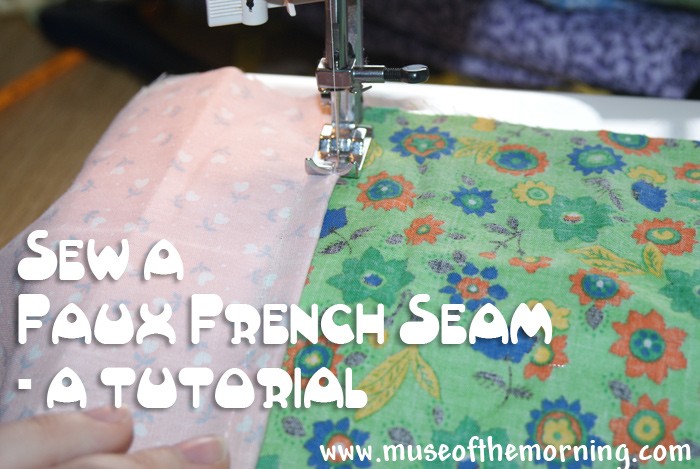
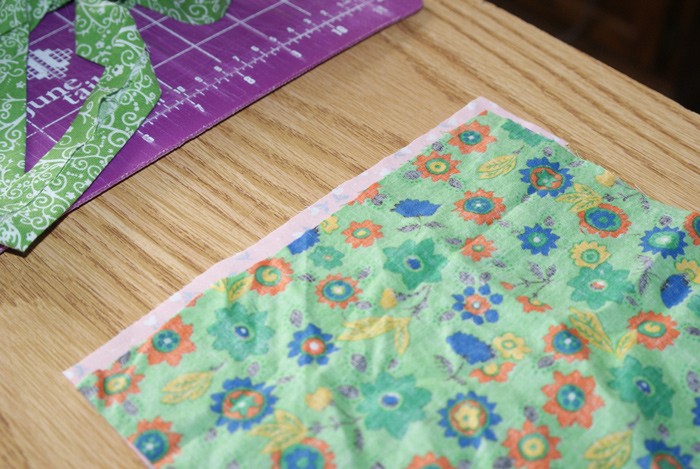
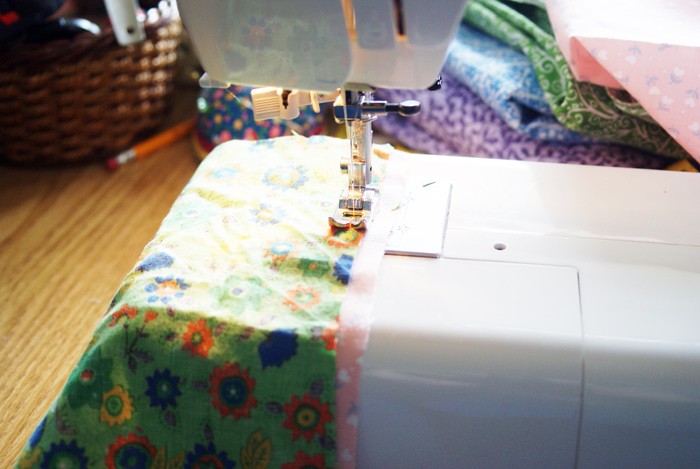
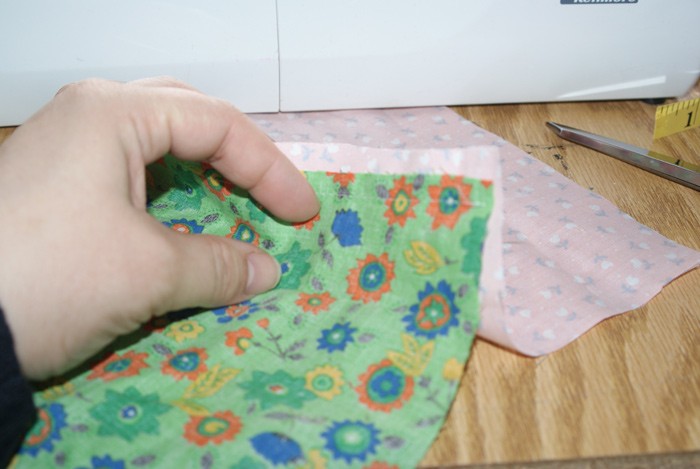
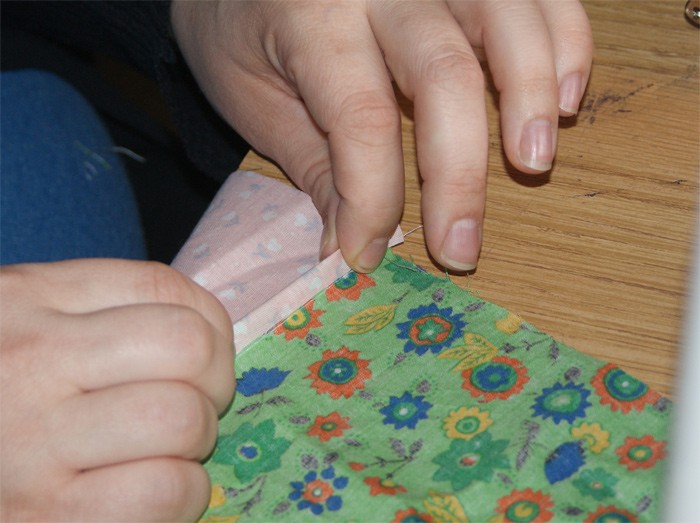

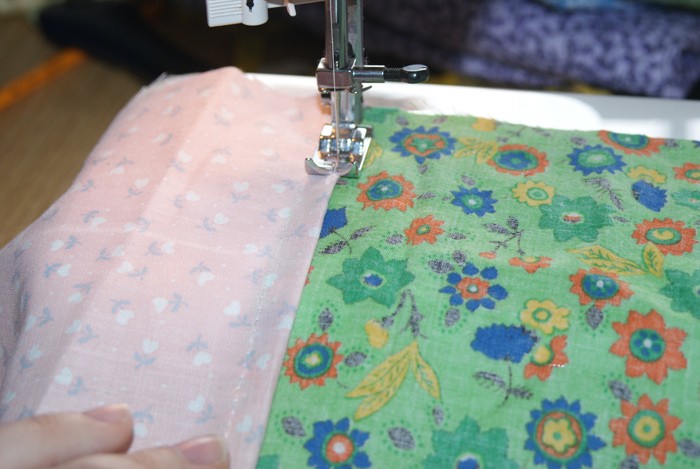
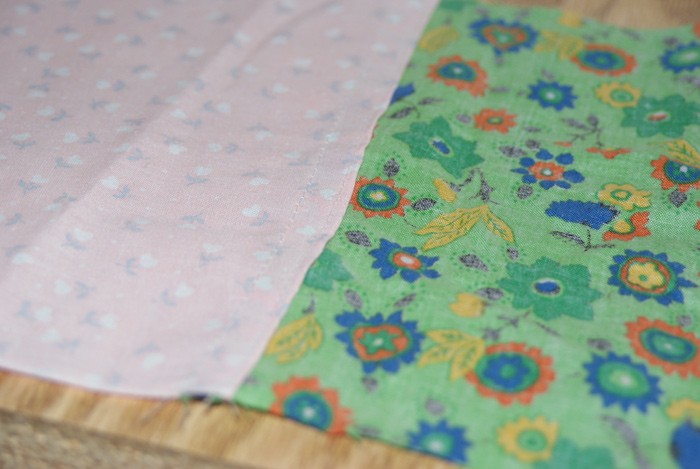
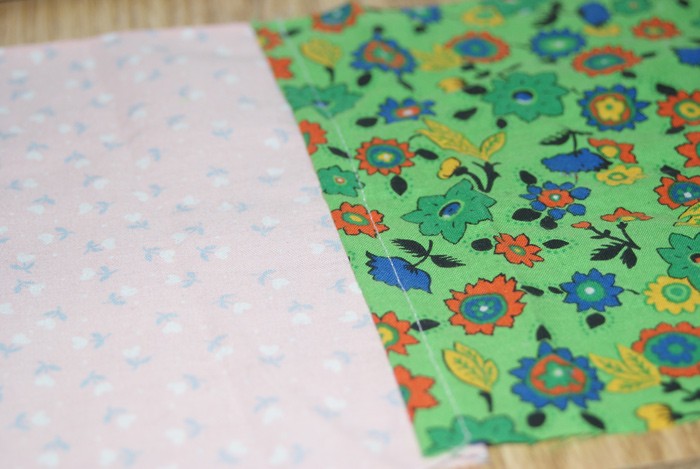


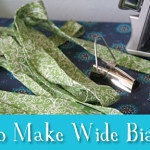

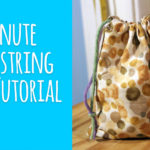
Hello!
I always thought this was flat felling?? In either case, it’s a great method of finishing seams! makes the whole garment stronger, too!
Sarah
Sarah, I looked it up and you are right! I had no idea! I suppose that’s what happens when you learn to sew from experience rather than with a real teacher! LOL. Thank you for letting me know!
Chrissy
It is actually a “run and fell” seam and used on jeans and heavy wear garments to make the seam stronger.